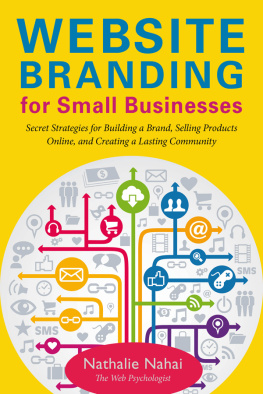Cognition by itself cannot produce action; to influence behavior, the cognitive system must operate via the affective system.
Although its comforting to believe that we make decisions from a rational place, in recent years mounting evidence to the contrary has disabused many of us of this notion. A considerable number of studies and theories suggest that our decision-making can in fact be significantly influenced and biased by our emotional processes.
One of the most widely cited of these is the semantic marker hypothesis, a mechanism proposed by neuroscientist Antonio Damasio which provides evidence that certain sub-cortical regions in the brain contribute emotional weight to the decisions we make. many have taken these findings to mean that emotion is at the route of all decision-making the reality is, however, much more complex.
One brain, two systems
In his book entitled Thinking Fast and Slow, and together they form the backbone of our decision-making. If we understand how each system works, we can use this knowledge to make better decisions and influence those of the people around us.
Psychologist Zajonc explains that these are the same processes that motivate us to approach or avoid something decisions on which we depend to survive. Its this system that knows when our partner is in a bad mood, or instinctively swerves the car when a child walks out on to the road. Its our hunch, our intuition, and it informs almost everything we do.
System 2 (thinking slow) is altogether more analytical, deliberate and rational; it is the mode that we employ to reason about the world. Its the system we use to consciously work out a maths sum or fill out a tax return and its usually rather labour intensive. We like to think that System 2 runs the show, but it is, by its very nature, a lazy system that has to cherry pick what it will and wont attend to we cant consciously analyse everything all the time. In fact, its this slow, controlled system that tends to kick in when our automatic processes get interrupted. This can happen when experiencing a strong visceral state (someone steals your wallet and youre furious), when we encounter an unexpected event (your mother-in-law drops by unannounced and you have to put on a smile) or when we come up against an explicit challenge (solving a cryptic crossword in the Sunday paper).
When it comes to decision-making, System 1 will continually generate feelings, intuitions and intentions, which, if endorsed by System 2, will turn into beliefs and actions. This interplay works well until were asked to respond to something that violates our normal understanding of the world (a flying pig) or requires greater cognitive attention (the end-of-year report). At this point, its System 2 that steps in, helping us to weigh up the facts (pigs cant fly, it must be an illusion) and respond appropriately (laugh it off).
Although wed like to think were rational, in reality, its our fast, automatic system thats in charge. System 1 relies on heuristics (cognitive rules of thumb) to reduce the complexity of incoming information and speed up our decision-making which, most of the time, works just fine. For instance, employing the principle You get what you pay for tends to be useful when having to make decisions in general, but in the absence of System 2s more rational approach, our automatic processes can sometimes fall prey to biases.
This states that people are rational agents that make logical decisions, by meticulously weighing up all the information, risks and probabilities inherent in a given situation. In real life, this would mean that strategies like decoy pricing should have zero effect on the financial decisions we make, since numbers are absolute. Yet research shows that the context or framing of a situation not only influences our perception of the facts, it also significantly impacts the decisions we go on to make.
For instance, imagine that your friend asks you to go out and buy her some minced beef to make spaghetti bolognese. You go to the butchers and you see two options: 75 per cent lean versus 25 per cent fat. The astute among you will have noticed that mathematically both choices are identical. However, research shows that were significantly more likely to buy the 75 per cent lean option, simply because of our positive association with leanness. So whats happening?
Well, information is never free from the context in which it is delivered or received, and along with our associations, there are many ways in which this context can skew our decisions. For example, we tend to pay more attention to information which comes easily to mind (the availability heuristic), and we often give greater weight to memories that are personally relevant, or emotionally vivid which is why stories can be so powerful. We also tend to seek out information that enhances our self-esteem (self-serving bias) and reinforces our existing world view (confirmation bias), all of which can heavily influence both the marketing messages we respond to, and the subsequent purchase decisions we make.
Whether we like it or not, the reality is that our decisions are influenced by a whole host of factors, many of which lay beyond our conscious awareness and control. This means of course, that if we can understand how and why these principles work, we can also use them online to help shape the behaviours of others.

![Nathalie Nahai [Nathalie Nahai] Webs of Influence: The Psychology of Online Persuasion, 2nd Edition](/uploads/posts/book/124053/thumbs/nathalie-nahai-nathalie-nahai-webs-of.jpg)











